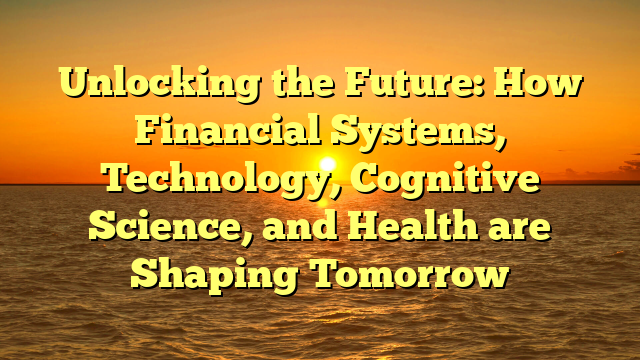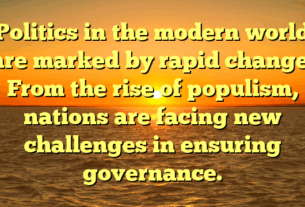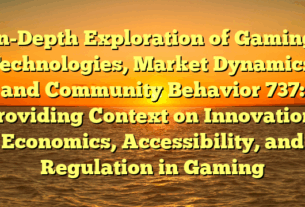With the pace of change accelerating in today’s era, the convergence of finance, technology, AI and cognitive development, and wellness science is developing a unprecedented paradigm. This article delves into how these fields interconnect and determine our future.
—
Finance and Technology: The Rise of Fintech
The financial world has always been core in economic development. With the advent of modern technological tools, a surge of fintech has emerged.
Financial startups like Square are streamlining transactions, making banking more inclusive. By using blockchain and cryptocurrency, transactions are now faster, cheaper, and safer than ever before.
Beyond that, machine learning systems in finance are helping institutions to forecast market trends, reduce risks, and improve customer experience. Automated advisors like Betterment or Wealthfront are augmenting traditional human advisors, offering smart investment options to users with minimal fees.
—
Technology and Intelligence: The Role of Artificial Intelligence
AI has surpassed the realm of science fiction. It now plays a pivotal role in decision-making across various sectors.
From natural language processing in tools like ChatGPT to computer vision in autonomous vehicles, technology has enabled machines to analyze like humans.
One key area of interest is cognitive enhancement, where technology is not just replacing but amplifying human intelligence. Brain-computer interfaces (BCIs), like those developed by Neuralink, aim to merge the human brain with machines.
Additionally, jejuslot is being used in education to tailor education, in business to analyze consumer habits, and in cybersecurity to mitigate breaches before they occur.
—
Health Meets Tech: The Digital Transformation of Healthcare
Healthcare is undergoing a massive tech revolution. With wearable tech like Fitbits, individuals can now monitor their vitals in real-time.
Telemedicine has become mainstream, especially after the pandemic. Platforms like Teladoc are allowing patients to talk to doctors from the comfort of their homes.
AI in healthcare is helping in diagnosis of diseases, like cancer, by scanning X-rays and MRIs with high accuracy. Precision medicine, powered by AI, can now tailor treatments based on genetic makeup.
Beyond that, robotic surgery is offering more accurate procedures, reducing recovery times and improving outcomes.
—
The Intelligence of Wellness: Merging Mental and Physical Health
Cognition is not just about IQ or academic success. Emotional intelligence and mental well-being are just as crucial in the modern health narrative.
Apps like Calm, Headspace, and Moodfit are delivering AI-powered meditation, stress relief, and mood tracking tools to users around the globe.
Smart algorithms are learning how to interpret emotional signals through voice, text, and facial recognition. These technologies can recognize early signs of depression, anxiety, or burnout, allowing timely interventions.
The intersection of neuroscience, psychology, and machine learning is powering tools that help improve memory, decision-making, and emotional regulation. This is not only vital for individuals but also boosts productivity in workplaces and schools.
—
Finance for Health: Smart Investments in Well-being
A growing concept is the economic lens of health. Insurers and employers are more and more investing in wellness programs, understanding that healthy individuals are more productive and cost-effective.
Wearables now offer incentives for fitness – consider insurance discounts for steps walked or rewards for consistent heart rate monitoring.
Investment in biotech is surging, with companies focusing on anti-aging, mental health, and personalized medicine attracting billions in venture capital.
Cryptocurrency and blockchain are being tested for medical records – ensuring transparency and control of patient data.
—
Challenges and Ethical Concerns
Despite the promising advances, there are significant challenges. AI bias in healthcare can lead to misdiagnosis. Fintech apps may not be accessible to all, especially older populations. Data privacy, especially with wearables and digital health apps, remains a key issue.
Moreover, the over-reliance on technology could diminish human-to-human interaction, particularly in care-based fields like mental health.
Ethical questions also arise when enhancing intelligence with chips or BCIs – who owns the thought? Where do we draw the line?
—
The Road Ahead
To wrap up, the integration of finance, technology, intelligence, and health is reconstructing how we work.
The future may hold a world where your smartwatch warns you of a financial risk, your AI therapist adapts to your mood, and your bank account rewards your daily run. This is no longer sci-fi – it is our unfolding reality.
The key lies in ensuring these innovations are inclusive, so the benefits of this transformation can be shared by all.



